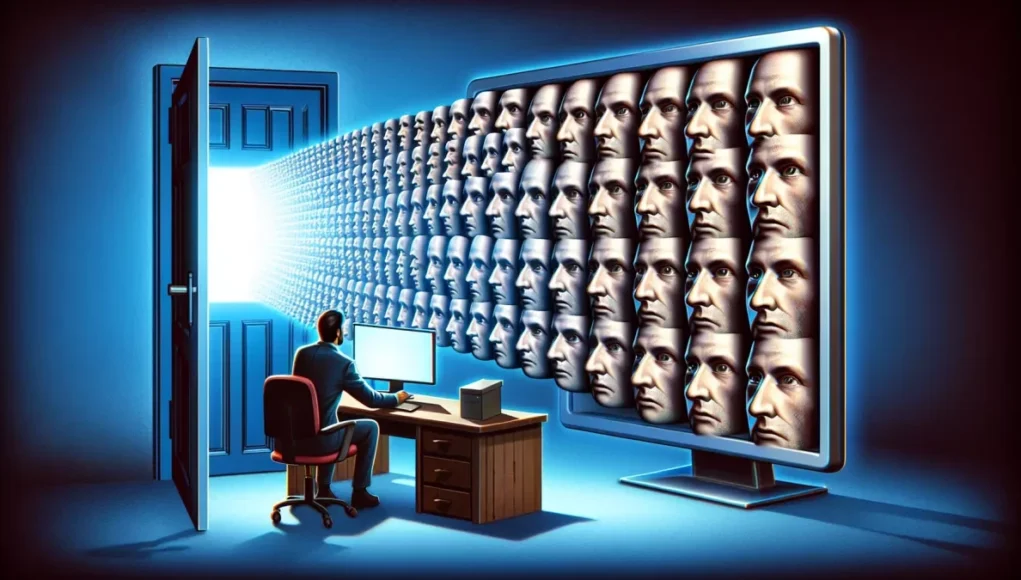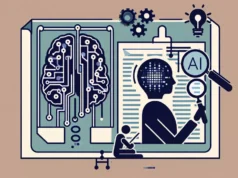In the digital era, our lives are increasingly intertwined with countless information streams accessible at our fingertips. In parallel, though, an insidious phenomenon is emerging – the echo chamber effect. Concepts such as personalization, targeted advertising, and algorithmically curated content have revolutionized the way we consume information through digital mediums, raising questions about the impact on societal cohesion, democratic discourse, and increasingly polarized beliefs.
Echo chambers refer to situations in which ideas, beliefs or data points are amplified or reinforced by repetition inside a ‘closed’ system, largely uninterrupted by differing outside perspectives. They exist both in traditional and digital media but are generally considered more prevalent online due to information-filtering mechanisms like algorithms, personal biases guiding content selection, and homophily, whereby people flock together based on shared interests or beliefs.
Today, our real-time data is increasingly being used to provide us with a curated, tailored online experience. This personalizaton, while seeming innocuous, perpetuates echo chambers as it leads to an information diet that mostly aligns with our pre-existing beliefs, arguably compromising our exposure to varied perspectives. The algorithms – often opaque – that power these mechanisms constantly learn from our behaviour to enhance the personalization process, leading to what Eli Pariser coined as ‘The Filter Bubble’.
Social media platforms, with their global reach and capacity to disseminate information rapidly, are often at the center of discussions on echo chambers. Facebook, Twitter and YouTube have been criticized for their role in enabling echo chambers, especially in context of politically charged topics, by engineering the information people are exposed to based on data gleaned from their usage patterns. For instance, a study published in the Proceedings of the National Academy of Sciences showed that false information spread six times faster than true information on Twitter.
Academic research also highlight the societal implications of echo chambers. Sunstein’s work, for instance, demonstrated that discussion among like-minded people tends to radicalize their pre-existing viewpoints. This finding has been observed in digital spaces too, leading to concerns about the reinforcement of extremist views. Similarly, Quattrociocchi et al. showed the role of echo chambers in disseminating misinformation online during divisive events, such as the 2016 US elections and Brexit.
Equally worrisome is the potential impact of echo chambers on democratic discourse. A well-functioning democracy thrives on a diverse and pluralistic information environment. When individuals are mostly exposed to information that aligns with their beliefs, it can lead to polarised public opinion, reducing opportunities for consensus building and productive dialogue.
Disturbing though this outlook may be, various strategies could be employed to challenge and burst these digital echo chambers. Encouraging digital literacy and fostering critical thinking are crucial in enabling consumers of online information to discern the credibility of sources, understand the impacts of personalized content, and grasp the value of diversified perspectives. Furthermore, tech companies can take more responsibility by enhancing algorithmic transparency, giving users more significant control over their information ecosystems, and adjusting mechanisms that inadvertently foster echo chambers.
Public discourse and decision-making processes can also be enriched by encouraging a diversified media consumption, promoting user interaction with content that challenges their pre-existing views. For example, civil discourse platforms like AllSides, Parlia, and Kialo offer opportunities for users to engage with diverse perspectives and deliberate respectfully on contentious issues.
While the echo chamber effect is a complex challenge in our digitized world, confronting it is essential to retaining the social, political, and cognitive diversity that fuels informed decision-making and democratic discourse. Rather than a test of our resilience, it should serve as a rallying point to safeguard the pluralism and diversity that lie at the heart of democratic societies.
Sources:
1. PNAS (2018): The spread of true and false news online.
2. Sunstein, C. (2002). The Law of Group Polarization.
3. Quattrociocchi, W., Scala, A., & Sunstein, C. R. (2016). Echo Chambers on Facebook.
4. AllSides, Parlia, Kialo – platforms for civil discourse.






